Serendip is an independent site partnering with faculty at multiple colleges and universities around the world. Happy exploring!
You are here
Serendip Studio Projects
|
|
Child and Family Studies The Tri-College Child and Family Studies (CFS) Consortium is an interdisciplinary group of faculty from many departments (e.g, Anthropology, Education, Political Science, Psychology, Sociology, Comparative Literature, and Social Work) who share interests in children, families, schools, and social-cultural contexts. Within this broad framework, different disciplines focus inquiry into the biological, familial, socioeconomic, political, cultural, and educational dimensions of child and family well-being and the varying life courses and life chances of individuals. |
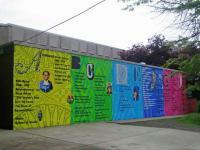 Mural of Pioneering Women, A-Z, 4400 Haverford Avenue, Philadelphia PA |
Women on the Wall: Working in Incarceral Spaces A site for planning and reflecting on a reading-and-writing group that meets weekly at Riverside Correctional Facility, a women's jail in the Philadelphia Prison System. |
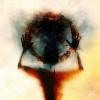 Mario Sánchez Nevado, "Closer" |
The Language and Literature of Trauma In Spring 2014, Sam Terry and Anne Dalke pursued a shared reading list on this topic. We read the work of theorists Lauren Berlant, Cathy Caruth, Albert Camus, Elizabeth Ellsworth, Didier Fassin, Shoshana Felman & Dori Laub, Stefano Harney & Fred Moten, Linda Kauffman, Dominick LaCapra, Eve Sedgwick, Laurie Vickroy and Anne Whitehead; we also studied novels and memoirs by Pat Barker, Edwidge Danicat, Rena Fraden, Larry Heinemann, Ann Michaels, Caryl Phillips and Binjamin Wilkomirski. |
 Nancy Bea Miller, "Amber Dreaming" |
Critical Feminist Studies Not monolithic, prescriptive, conformist or singular, contemporary feminist theory covers a wide range of perspectives and approaches, which this class (part of a 360° on Identity Matters) showcases. The texts we examine focus on, but are not limited to, those that address the matters of reading and interpreting literature. Asking always about the possibilities of transformation, we also attend to broader theoretical and political concerns, in an attempt to define the questions which contemporary feminisms raise and the different answers with which feminisms reply. |
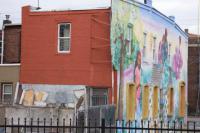 Photograph by Jody Cohen, taken in Camden, New Jersey |
Changing Our Story: Shifting Identities, Altering Environments Grounding ourselves in the domains of identity matters and ecological studies, two Emily Balch Seminars @ Bryn Mawr College ask how different dimensions of human identity (such as race, class, gender, sexuality and religion) affect our ability to act in the social and natural worlds; simultaneously, we look at how these spaces shape and re-shape our identities and actions, individually and collectively. Our cross-disciplinary approach re-examines personal experiences through the differing orientations of the humanities, social sciences and sciences. Seeking fresh understandings, we revisit well-known examples of children’s literature, alongside Eli Clare's memoir, Exile and Pride: Disability, Queerness and Liberation; Elizabeth Kolbert’s “unnatural history,” The Sixth Extinction; and Ruth Ozeki's novel, All Over Creation, as well as essays by-and-about community activists and educators Teju Cole, Paulo Freire, Van Jones, and Eve Tuck. |
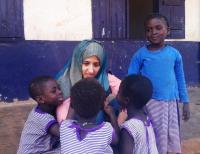 Besan Abu-Radwan, Haverford College '14, and students at Titagya Schools, Dalun, Ghana. |
Internationalizing Women's Education: an AALAC Workshop Faculty and staff from the Alliance to Advance Liberal Arts Colleges are seeking concrete ways to bring collaboratively developed international experiences into our campus classrooms. Over the past several years, many of our colleges have initiated partnerships with institutions from around the world, and have begun to address the challenges of turning general memoranda of understanding into specific collaborative projects. We offer here a place for our AALAC colleagues and international partners to come together and learn from one another as we pursue such directed work. We are initiating this on-line conversation, in order to prepare for a workshop on women's international education, to be hosted at Bryn Mawr College, May 8-10, 2015. |

|
Intervening in the Accessible: Reassembling the Social in Disability Studies At the Twenty-Seventh Annual Meeting of the Society of Disability Studies (Minneapolis, June 2014), Jody Cohen, Anne Dalke, Kevin Gotkin and Clare Mullaney explore the gradations, shades and registers that mark both differences and similarities and open up disability into a capacious intellectual brainspace. If disability is not just disability, or if disability is less a noun (an ascribed set of traits) than a verb, something through which we move (again and again) both in and out, like a needles and thread, then, they ask, how might this point us toward an alternative vision of “access”? |
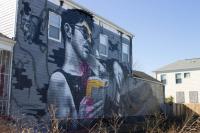 Photograph by Jody Cohen |
Steal This Classroom: Teaching and Learning Unbound Jody Cohen and Anne Dalke are two experienced teachers collaboratively creating a book and companion website. Now published by punctum books, the project brings together analytical frameworks from environmental studies with those that attend to the irreducibility and unknowability of the unconscious. Advocating for a form of sustainable pedagogy that flourishes amid diversity and disequilibrium, we are also drawing on stories from our own teaching. The alteration in educational practice that we describe recognizes and responds to the uncontrollable, yet resource-rich, complexities of classroom life, particularly for teaching and learning as social and environmental justice work. Limitlessness, we argue, is a richer way to think about sustainable pedagogy than is seeking new and better boundaries. |
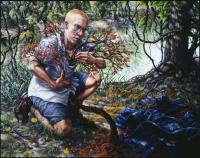 |
Identity Matters: Being, Belonging, Becoming This cluster of courses, which have been co-designed by professors with shared interests in disability studies, gender studies, human development, literature, social work, visual studies and writing, considers how multiple systems of identity, as Rosemarie Garland-Thomson says, “intertwine, redefine, and mutually constitute one another.” Focusing, in particular, on those identity categories of “humans being” that may seem non-normative, we are reading, viewing and creating a range of self-representations: What stories do we tell about ourselves? What images do we construct? How might we revise them? To what degree can we—and do we want to--intervene in the processes of gender and sexual identity, illness, disability and aging? What changes and “cures” are desirable? What are the possibilities, and what are the limits, of our re-imagining ourselves? What roles might others play in this re-imagining |
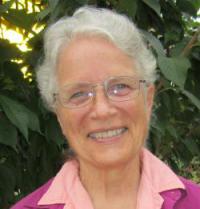 |
Hands-on Activities for Teaching Biology to High School or Middle School Students The expression "hands-on, minds-on" summarizes the philosophy we have incorporated in these activities - namely, that students will learn best if they are actively engaged and if their activities are closely linked to understanding important biological concepts. For example, it is helpful to use hands-on models to engage student interest and foster multiple modality learning, but it is crucial to closely link the modeling activity to student understanding of the actual biological processes. Some of our activities are explicitly aligned with the Next Generation Science Standards. |
